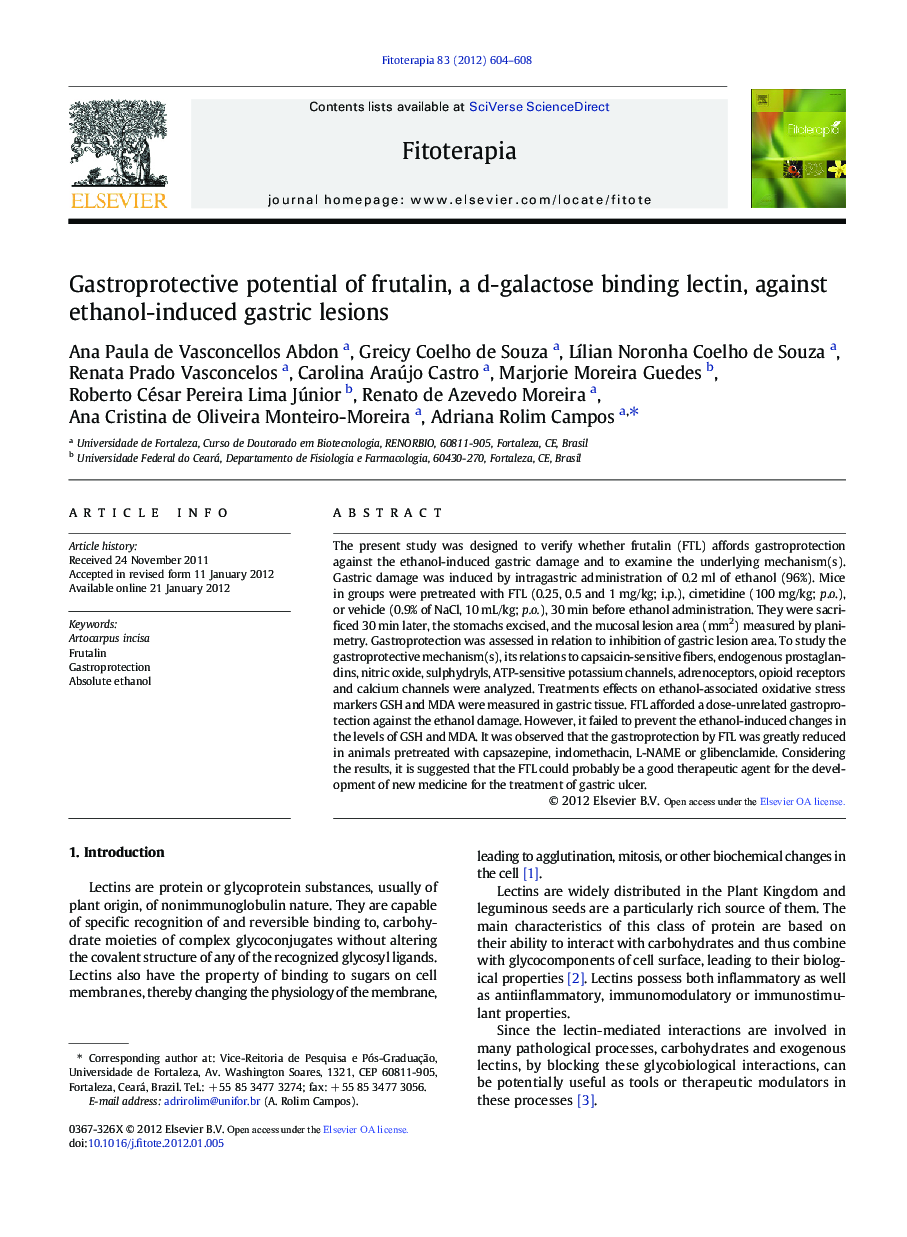| Article ID | Journal | Published Year | Pages | File Type |
|---|---|---|---|---|
| 5831664 | Fitoterapia | 2012 | 5 Pages |
The present study was designed to verify whether frutalin (FTL) affords gastroprotection against the ethanol-induced gastric damage and to examine the underlying mechanism(s). Gastric damage was induced by intragastric administration of 0.2Â ml of ethanol (96%). Mice in groups were pretreated with FTL (0.25, 0.5 and 1Â mg/kg; i.p.), cimetidine (100Â mg/kg; p.o.), or vehicle (0.9% of NaCl, 10Â mL/kg; p.o.), 30Â min before ethanol administration. They were sacrificed 30Â min later, the stomachs excised, and the mucosal lesion area (mm2) measured by planimetry. Gastroprotection was assessed in relation to inhibition of gastric lesion area. To study the gastroprotective mechanism(s), its relations to capsaicin-sensitive fibers, endogenous prostaglandins, nitric oxide, sulphydryls, ATP-sensitive potassium channels, adrenoceptors, opioid receptors and calcium channels were analyzed. Treatments effects on ethanol-associated oxidative stress markers GSH and MDA were measured in gastric tissue. FTL afforded a dose-unrelated gastroprotection against the ethanol damage. However, it failed to prevent the ethanol-induced changes in the levels of GSH and MDA. It was observed that the gastroprotection by FTL was greatly reduced in animals pretreated with capsazepine, indomethacin, L-NAME or glibenclamide. Considering the results, it is suggested that the FTL could probably be a good therapeutic agent for the development of new medicine for the treatment of gastric ulcer.
Graphical abstractDownload high-res image (215KB)Download full-size image
